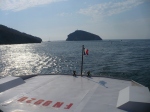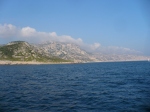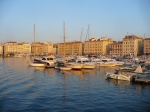As a final post, as I’ve long since left Marseille and am firmly re-ensconced (at least for the rest of this academic year) in San Diego, I figured I’d sign off with a post of a more practical nature. So here’s my take on how to find the perfect French bread – from an American former novice but current pro. It’s an art, you see.
Step 1: Find your favorite bakery.
This is accomplished by sampling the baguettes offered by as many different bakeries as feasibly possible, ideally more than once. The hallowed designation of “favorite” is to be bestowed as a function of three distinct dimensions:
- Proximity
- Consistency
- Deliciousness
Proximity to the location where you’ll be consuming said baguettes (normally, one’s place of residence, though work is a possibility as well) is extremely important for two reasons. First, baguettes start getting stale and lose their inner sanctum of squishiness surrounded by that perfectly crusty shell the moment they leave the oven. Any superfluous time added between oven exit and mouth entrance simply downgrades baguette quality. Second, a fresh, hot baguette swaddled in its paper sheath – when you can feel its fleshy, soft heart beating in your hand while walking home – becomes an incredible temptation to just bite its head off while walking down the street. This is frowned upon by the oh-so-chic French. Reducing the amount of time you have to carry the doughy mass of desire will, of course, lead to a higher percentage of baguettes transported intact to their final eating place.
Consistency is essential as well. Patronizing a bakery with wild fluctuations in baguette quality can arguably be a worse experience than being supplied by a constantly mediocre one. In the latter case, you may have lower expectations but at least know not to get your hopes up. In the former, however, previously-experienced good baguettes set the bar high, and when the current specimen turns out flat and uninspired, it can ruin the delightful, breathless anticipation of a bready, cheesey day at the park.
And of course, deliciousness speaks for itself.
Step 2: Discover your perfect level of crustiness.
Everyone likes their baguettes cooked to different levels of done-ness, and knowing exactly where your palatte stands is an empirical question. My personal favorite is the equivalent of medium-rare: cooked enough so there’s a nice crust, but still soft and able to be squashed a bit. This is manifest by a very light tan color. Obviously, darker crust = more cooked = crunchier.
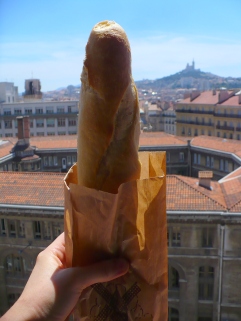
Yes, this is me holding a baguette out my apartment window. No, I did not subsequently drop it seven stories into the street below.
Step 3: Develop an eye for perfection.
Knowing what you want is important, but being able to spot it from the far side of a bakery counter is essential. Bakeries here generally keep their precious goods in big wooden crates, with the baguettes all standing on one end, stacked in front of each other. You’ll have about 5 seconds between the time when you get to the front of the line (and thus have an unobstructed view of the offerings) and when the baker grabs a baguette and wraps it up for you. It’s up to you to size up the baguette he’s about to grab and tell him to take a different one if that one looks too cooked or not cooked enough or otherwise not to your liking. This rapid-fire visual perception, alas, only comes with practice, grasshopper.
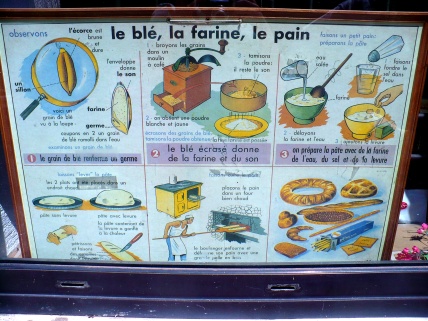
How to bake French bread: STEP 1: Wake up. STEP 2: Walk to your local bakery. STEP 3: Give them between 60 and 80 centimes. STEP 4: Voilà!
And with that… till next time in Marseille. We’ll see if there will be a next time…



 Posted by stormingthebrain
Posted by stormingthebrain 
